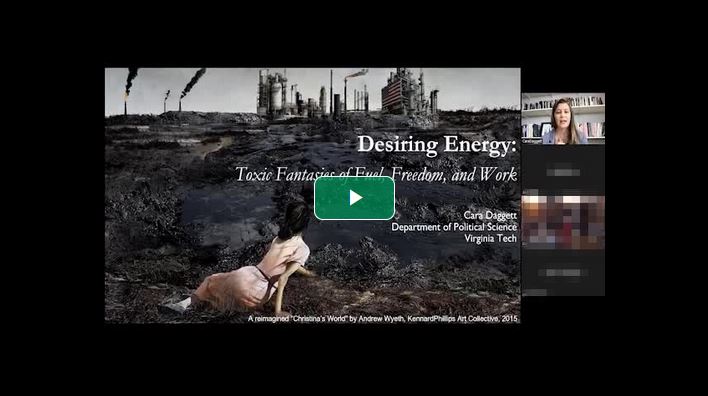Energy, work, and power are intertwined, both in the scientific definition of energy (the ability to do work), and in the political manifestation of human-fuel practices. Fossil fuel advocates rely upon the threat of job loss and energy dependency to mobilize affection for oil, coal or gas, but many renewable energy advocates also adopt this framework in calls for a just energy transition. Doing so helps keep modern energy cultures yoked to extractivism. Cara Daggett traced the historical emergence of the relationship between energy and work, focusing upon how work came to be understood and valued as a site of energy transformation. The energy-work ethos informed the emergent fossil fuel culture, wherein technical categories of work and waste intersect with racialized, and gendered, judgments of productivity and sloth. Thinking about energy historically suggests that shifting our fuel cultures will require a corresponding shift in (post)-industrial cultures of work and Western understandings of freedom.
Cara Daggett gave the lecture on 19 May 2022 online as part of the workshop “Mental infrastructures of modern fossil and bio-based societies”. She is an Assistant Professor in the Department of Political Science at Virginia Tech where she researches feminist political ecology. See more under https://www.caranewdaggett.com/.
Recent publications of her:
„Energy and Domination: Contesting the Fossil Myth of Fuel Expansion,“ (Environmental Politics)
„Toward Feminist Energy Systems: Why Adding Women and Solar Panels Isn’t Enough,“ with Shannon E. Bell and Christine Labuski (2020, Energy Research & Social Science),
„Petro-masculinity: Fossil Fuels and Authoritarian Desire“ (2018, Millennium: Journal of International Studies)
Book: The Birth of Energy (Duke 2019)


